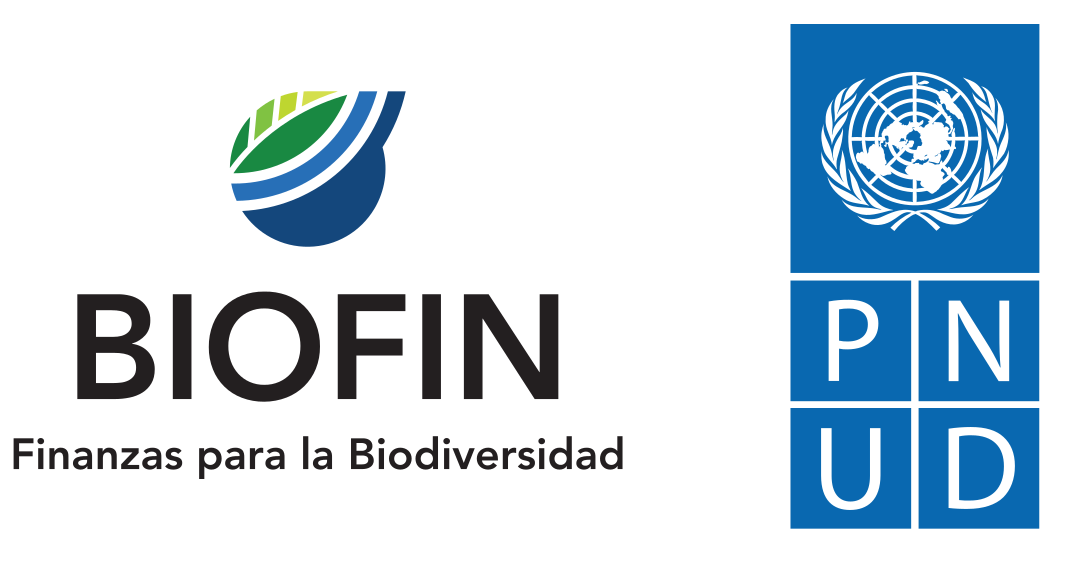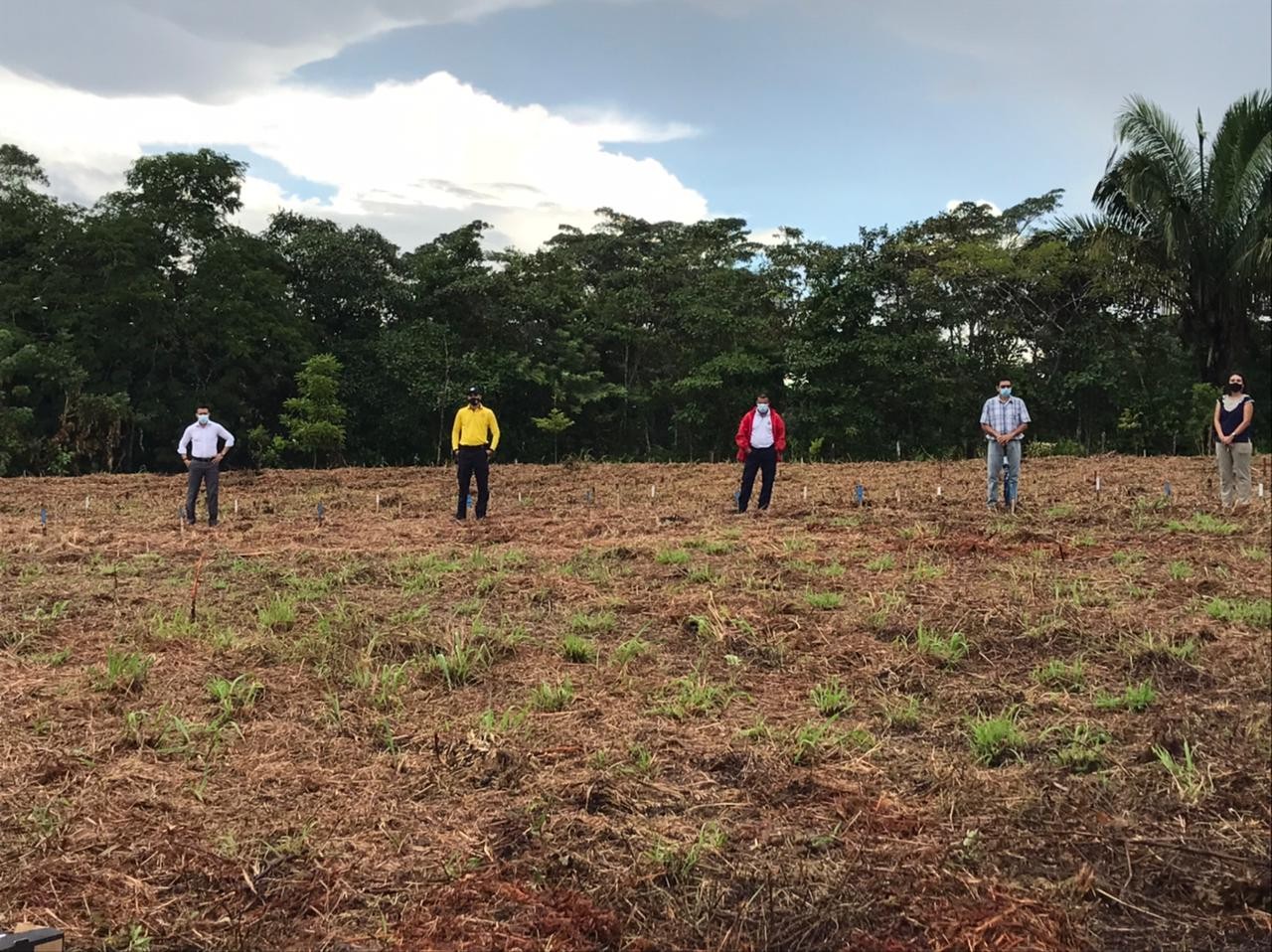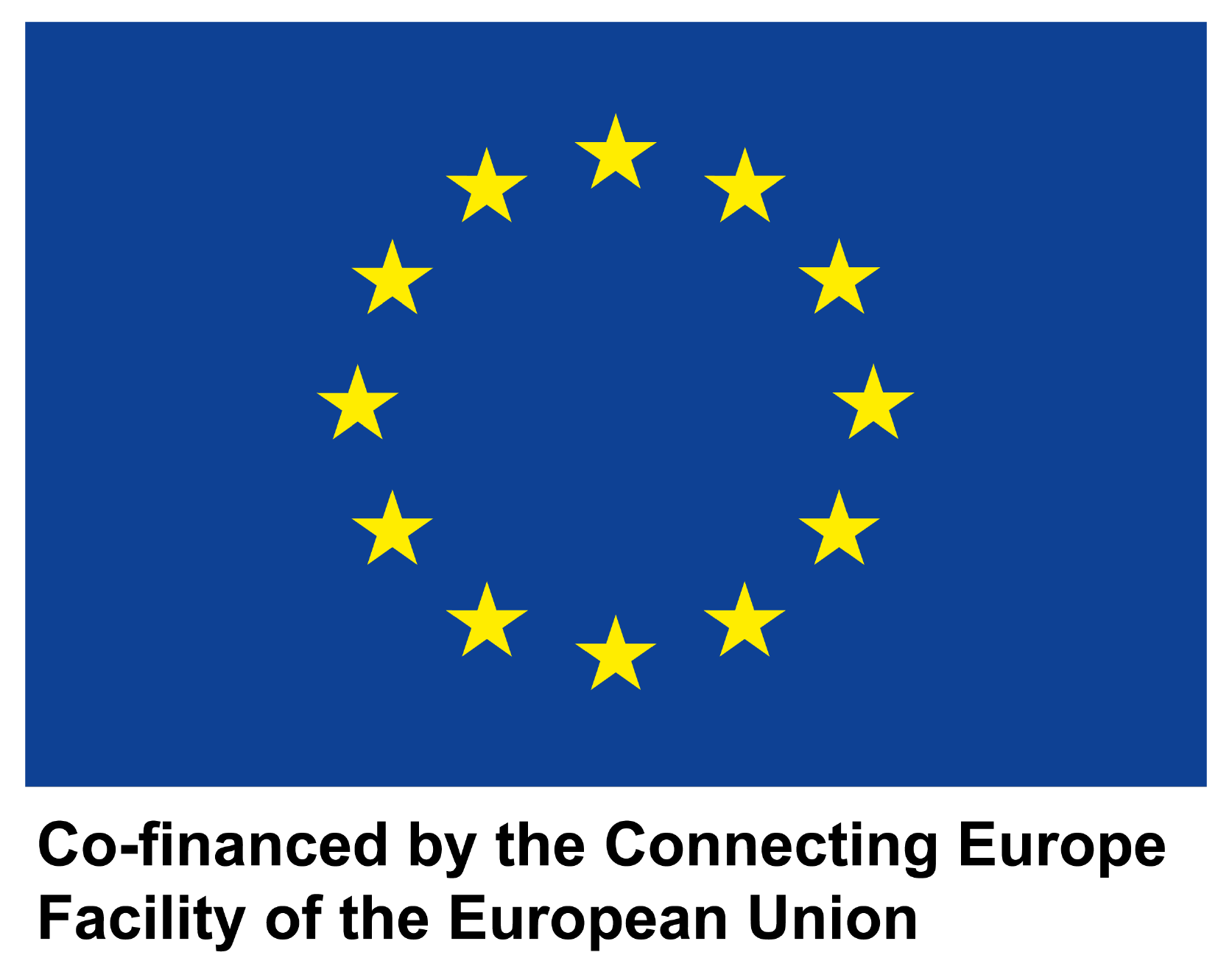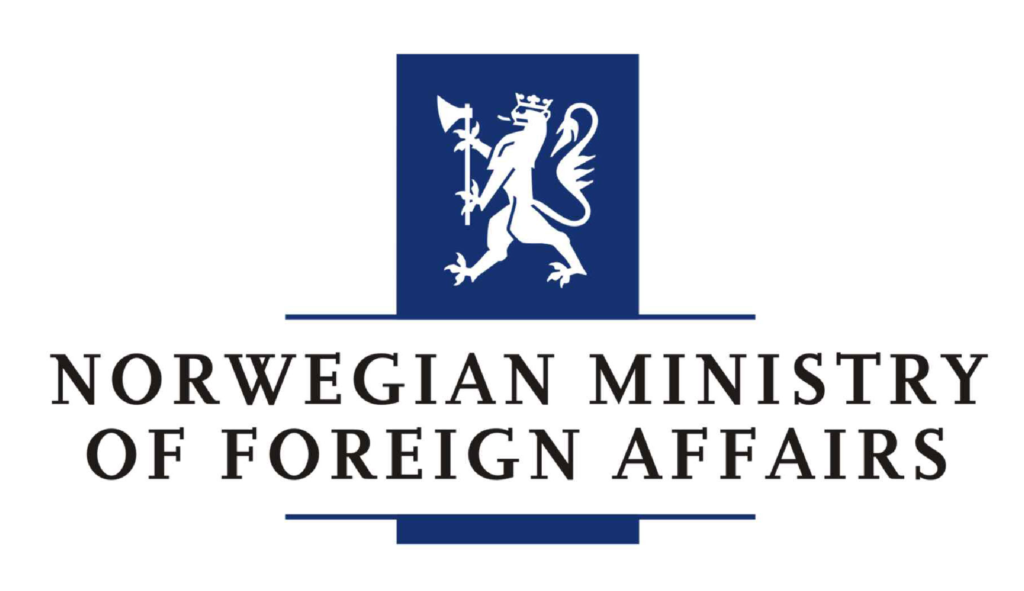Photography: PNUD Costa Rica
- With the adoption of a thousand trees, the Chinese technology company Huawei joins “Footprint of the Future”, an initiative promoted by the Government of Costa Rica and UNDP.
- Native species such as ceiba, coffee, medicinal plants, yellow bark, savanna oak, jacarandas, laurel, almond and guanacaste will be planted on a two-hectare site.
- New forest will offer life, biodiversity and resilience to the ecosystem, while providing green jobs to women in the area.
Los Chiles, August 6, 2021. A former two-hectare sanitary landfill, located in the canton of Los Chiles, in the northern part of the country, will become a forest with 1,000 native species thanks to the contribution of Huawei.
The Chinese technology company officially joined the “Footprint of the Future” initiative this Friday, promoted by the Government of Costa Rica together with the United Nations Development Program (UNDP).
In a ceremony held in Los Chiles, the Vice President of the Republic, Epsy Campbell Barr, planted together with the CEO of Huawei, Peng Yang, the first trees that will form the forest with thirteen circumferences, designed from Nelder’s algorithm.
The activity also had the participation of the Vice Minister of the Environment, Franklin Paniagua, the Mayor of Los Chiles, Jacobo Guillén, and the UNDP BIOFIN coordinator, Ana Lucía Orozco.
In the forest -which will offer life, biodiversity and resilience to the ecosystem, as well as green jobs for women- different native species will be planted such as ceiba, coffee, medicinal plants, yellow cortea, savanna oak, jacarandas, laurel, almond tree, guanacaste, among other
“We thank the Huawei company for joining the Future Footprint initiative and contributing to our country’s efforts to forge the foundations of a sustainable, inclusive and resilient future for all people,” said Vice President Campbell, who is also the manager of this initiative.
He also recalled that the project was born with the aim of leaving an indelible sustainable footprint and with the need to achieve an inclusive economic recovery after the impact of the COVID-19 pandemic.
She explained that, unlike other reforestation programs, “Huella del Futuro” stands out in its efforts to seek the survival of all planted trees by maintaining them for five years, a task carried out mainly by organizations led by women.
The project establishes a map that can be consulted online ( www.huelladelfuturo.cr) where it is possible to visualize the place where each tree has been planted and other information.
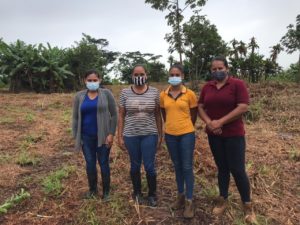
Photography: PNUD Costa Rica
For his part, the Huawei representative said that “for our company it is very important to participate in actions that seek a benefit with the environment. We have other projects such as TECH4ALL: Saving the Rainforest by Listening, where, through a public-private partnership, we provide technology for efforts to protect the forest and the species that inhabit it. We are happy to be part of Huella del Futuro and contribute to the reforestation of the northern area ”, he highlighted.
The new forest is located on a two-hectare land, owned by the Municipality of Los Chiles, which until 2010 served as a sanitary landfill. During the last 11 years its technical closure was established, so the decision was made to take advantage of this land, giving life to a new forest.
In this regard, Andrea Meza, Minister of Environment and Energy, indicated that the support of the business sector and citizens is essential to continue advancing in the fight against climate change and the generation of green jobs.
“I am very grateful for the support of the Huawei company to an initiative that will contribute to the country’s efforts to increase forest cover to 60% by 2030 and will seek to face the difficult economic situation of vulnerable groups.”
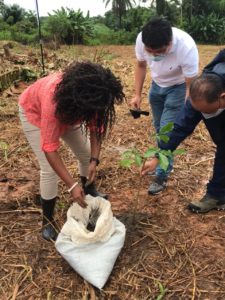
Ambitious project. “Footprint of the Future” is an initiative created within the framework of the celebration of the Bicentennial of Independence, with the aim of bringing together partners from various fields to green the northern part of the country, with the planting of 200,000 endemic, floral, fruit and timber.
According to data from FONAFIFO, in addition to reforestation, this initiative contributes to the generation of approximately 200 direct jobs and 700 indirect beneficiaries, and up to 14,000 green wages, which will boost the economy of the area, one of the most affected as a result of the COVID-19 pandemic, especially for rural women.
In this sense, Ana Lucia Orozco Rubio, coordinator of the BIOFIN initiative of the United Nations Development Program (UNDP), highlighted that “the multiple crises facing humanity: the pandemic and its economic consequences, the loss of biodiversity and climate change force us to rethink the way we propose solutions in the present ”.
“Footprint of the Future marks a new milestone, highlighting with concrete and comprehensive actions, the economic, social and environmental route, which we must accelerate in the face of immediate needs but with an eye toward achieving the 2030 Agenda and the Development Goals Sustainable, and this is what we conceive as Building Better for the Future ”, he emphasized.
The project has donor partners such as the Green Development Fund, and partners committed to amplifying its objective and logistical support, including ICT, ICE, MEP, INCOFER, MINAE, Coopelesca and Fundación Abuela Ecológica.
To date, 190 people have donated their individual Footprint, as well as companies and institutions, which translates into a total of $ 64,905 USD and 124,327 donated trees.
There are still 75,673 trees to reach the goal All people, companies, organizations that want to be part of the project can make their donations through www.huelladelfuturo.cr
Original Note: PNUD Costa Rica – Antiguo relleno sanitario de Los Chiles se convertirá en bosque con especies nativas
